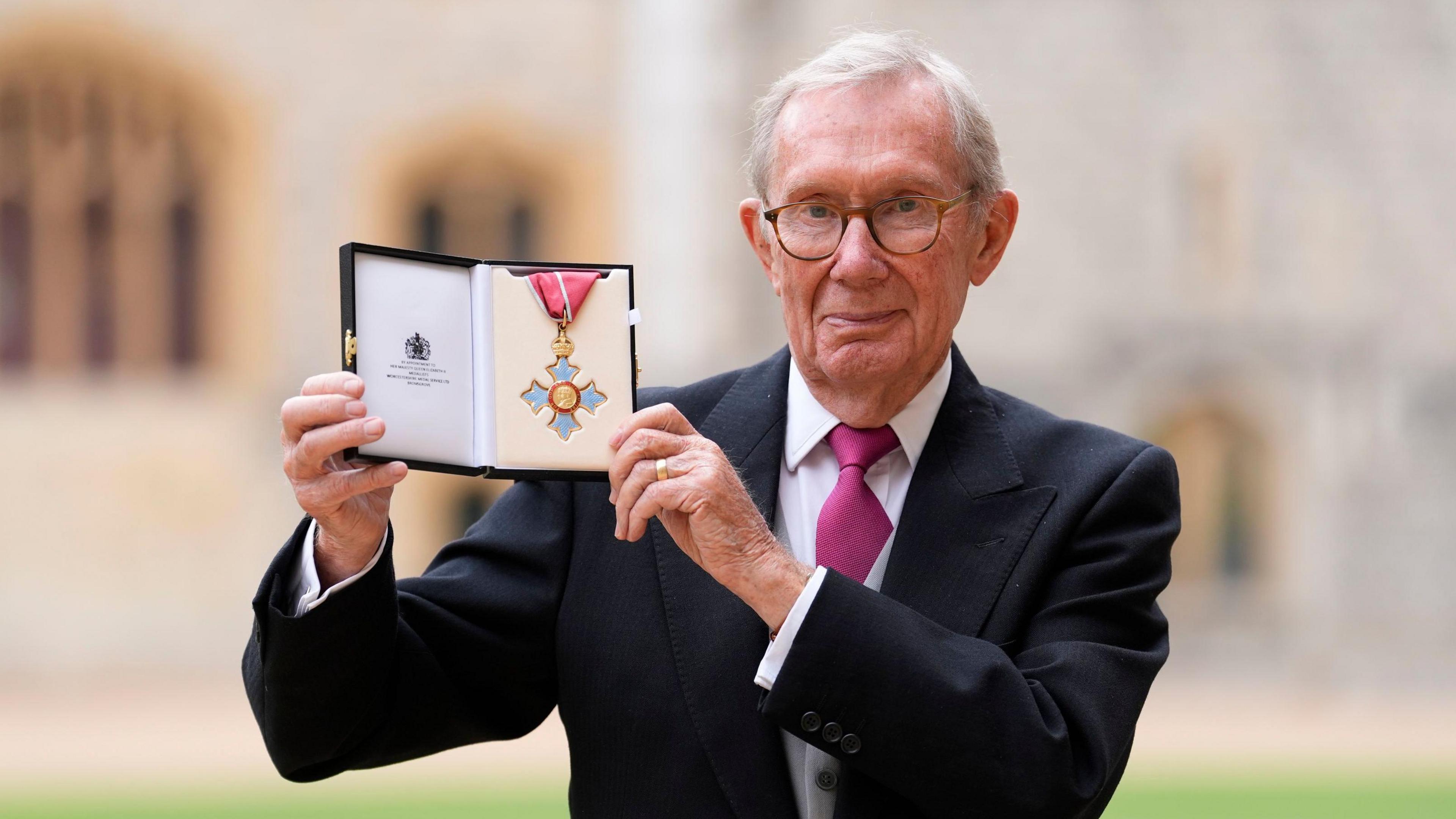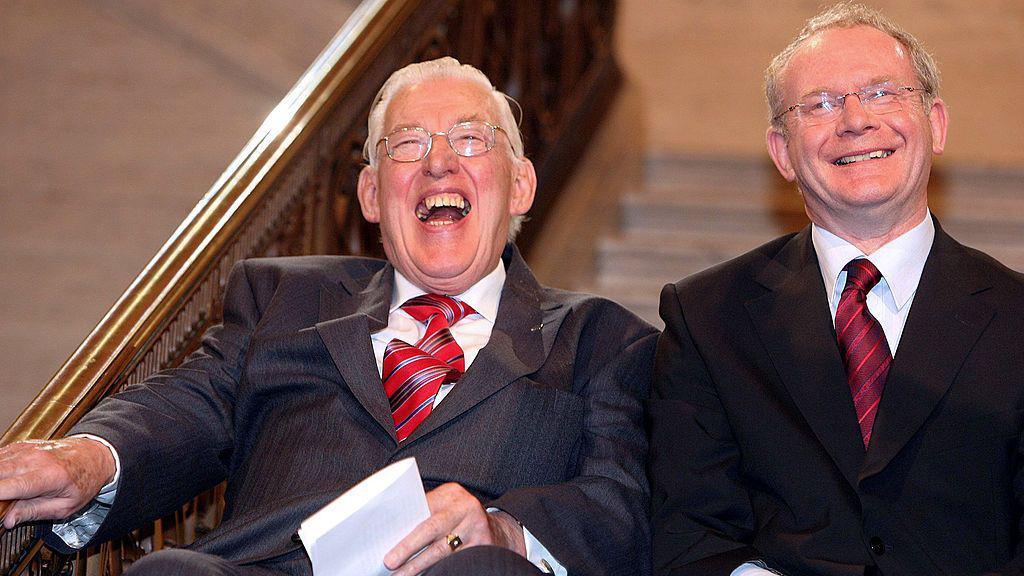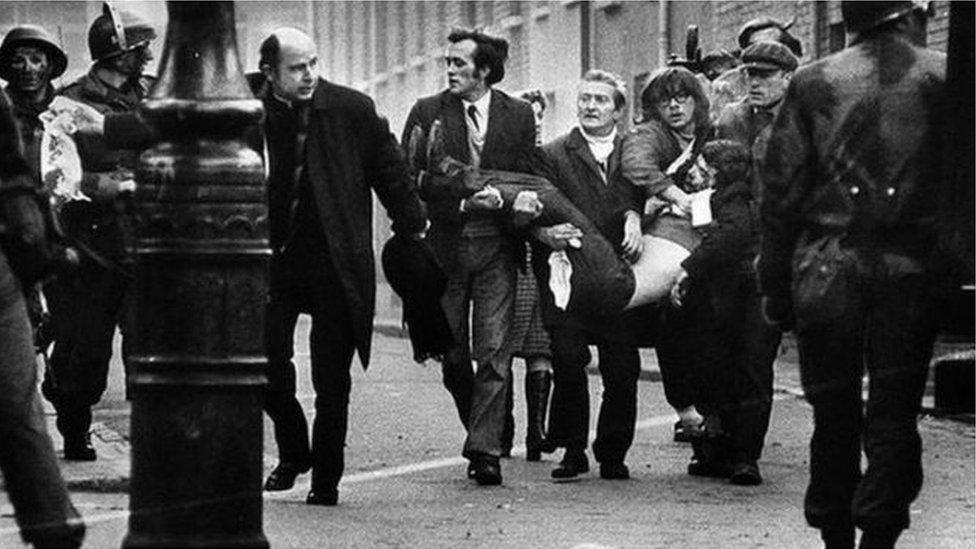CBE for journalist who reported on the Troubles

Peter Taylor was formally appointed CBE by the Princess Royal at Windsor Castle on Tuesday
- Published
A former BBC Panorama journalist who spent decades reporting on the Troubles has been formally made a Commander of the British Empire (CBE) at Windsor Castle.
Peter Taylor, 82, from Henley-on-Thames, said covering Bloody Sunday in his 20s as his first assignment in Northern Ireland inspired much of the work in his decades-long career.
British soldiers shot 13 civil rights protesters dead in Londonderry on 30 January 1972 and Mr Taylor said he felt guilty he "knew nothing, or very little" about the conflict at the time.
"I remember that day thinking I better start trying to find out, so I spent the past 50 years trying to do exactly that," he said.
Mr Taylor earned the trust of major figures, including former IRA commander and Northern Ireland's deputy first minister Martin McGuinness, whose funeral he attended.
He was also invited to the memorial for Ian Paisley, the former leader of the Democratic Unionist Party (DUP) and first minister.

Mr Taylor had relationships with Ian Paisley (left) and Martin McGuinness, who struck up a relationship despite their political differences
Mr Taylor spent nearly a decade to get permission to make a documentary inside the notorious high-security Maze Prison.
People serving sentences for murder "and a whole series of dreadful atrocities" were jailed there, Mr Taylor said.
The conversations with them were conducted without prison officers' oversight.
"In the end, when they saw the film they were glad that they had taken part because it gave a different view of the contribution that they were potentially prepared to make towards peace," he added.
"You know you've succeeded when you get that kind of reaction, when they're clearly expecting to take you to the cleaners for what you've done, and they say 'wasn't bad for a Brit'."
Fewer programmes like Mr Taylor's are now made because of a lack of funding, he said.
"My worry is that public service broadcasting and the climate in which I grew up and learned my trade is under threat," he added.
"It needs finances. What we do, people like me try and do, is to help people understand and make political choices and pass judgments on these extremely difficult, complex issues."
Get in touch
Do you have a story BBC Oxfordshire should cover?
You can follow BBC Oxfordshire on Facebook, external, X, external, or Instagram, external.
- Published13 August 2019
